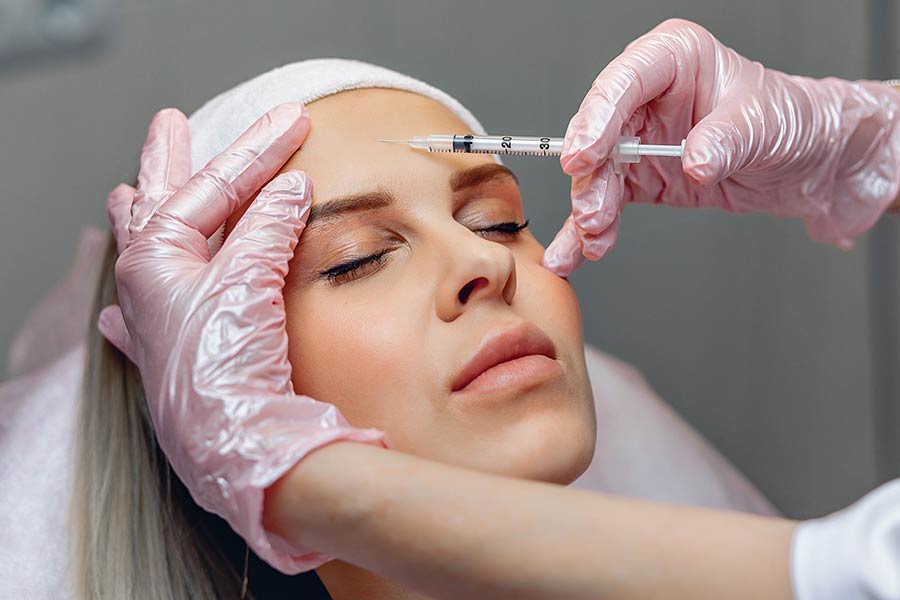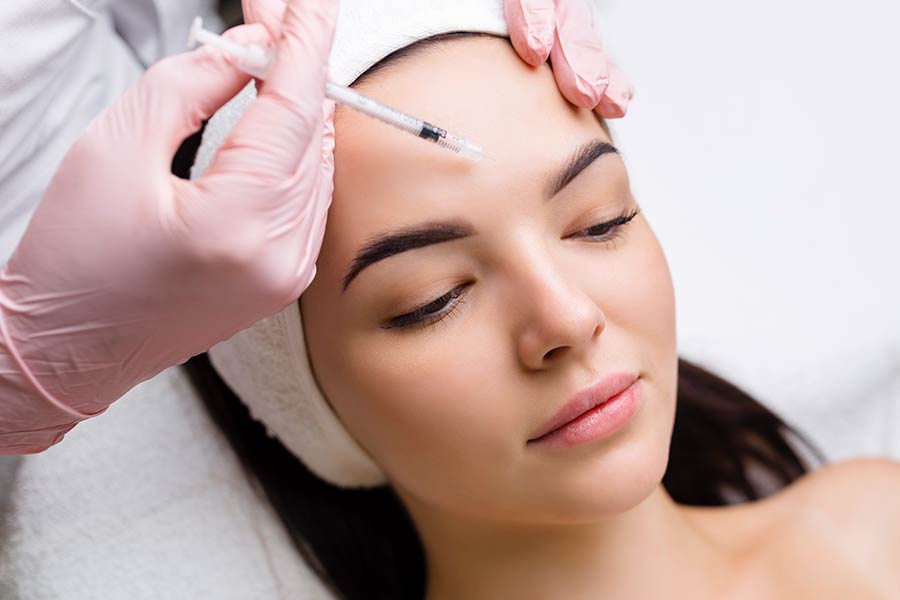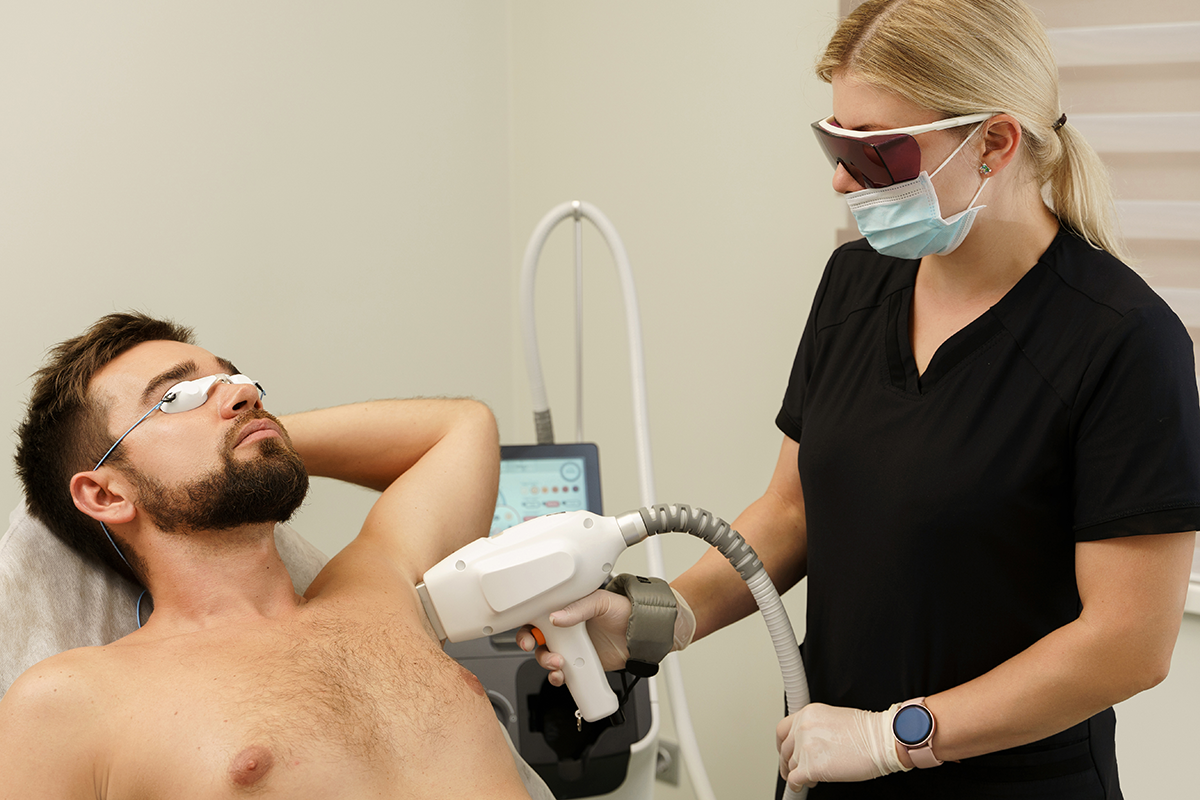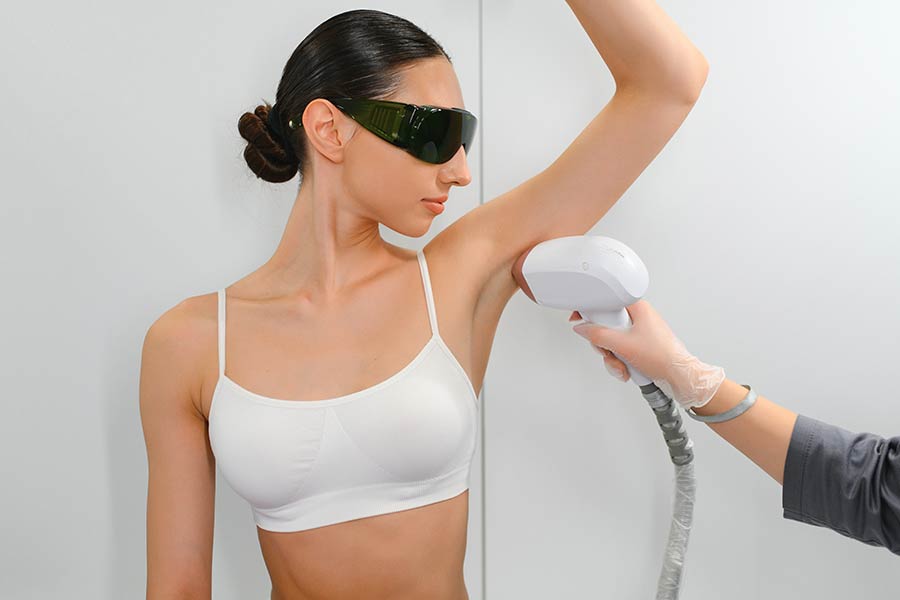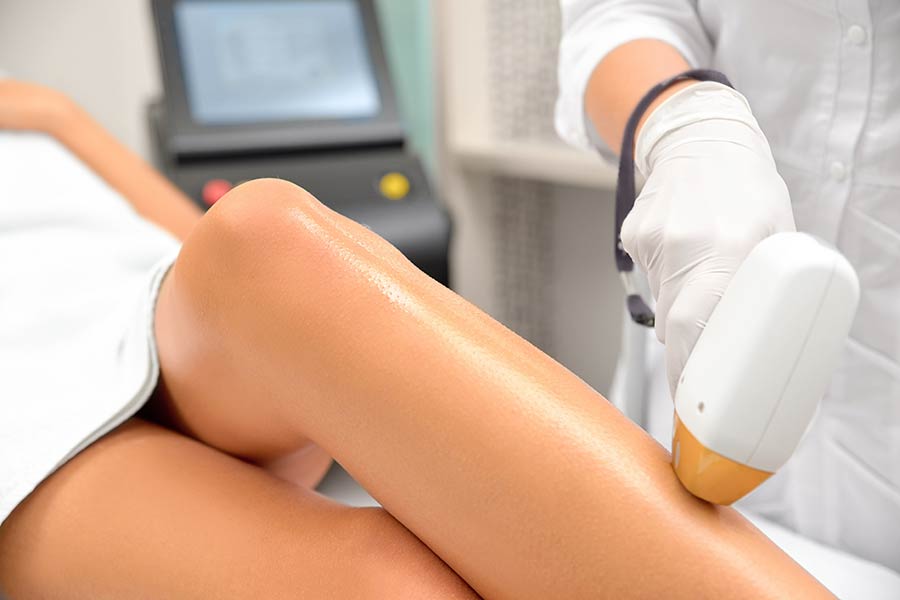Ever wondered what lies beyond the promise of youthful skin with botox injections? While these treatments are widely celebrated for their ability to smooth wrinkles and fine lines, they come with their own set of considerations. Botox injection side effects can range from mild discomfort to more significant health concerns. It's crucial to weigh the benefits against the potential risks before making a decision. This post aims to shed light on what you should expect after receiving a botox treatment, including common and rare side effects, ensuring you're well-informed before taking the plunge into the world of cosmetic enhancements.
Key Takeaways
- Botox injections can cause side effects, but most are mild and temporary. Always get Botox from a qualified professional.
- Watch for symptoms like bruising, swelling, or headache after your treatment. These are common but should fade quickly.
- If you have side effects, there are ways to manage them. Cold packs can ease swelling, and over-the-counter pain relief can help with discomfort.
- To lower your risk of side effects, follow your provider's advice on aftercare and avoid rubbing the treated areas.
- People with certain conditions or who take specific medications should talk with their doctor before getting Botox. Safety first!
- Stay informed by asking your healthcare provider questions and reading up-to-date safety information on Botox.
Understanding Botox Side Effects
Common Reactions
After a Botox injection, some people might notice redness, swelling, and bruising at the injection site. These are common reactions. They usually don't last long.
The discomfort from these side effects often goes away on its own. It's important to follow aftercare instructions from your doctor. This can help reduce any discomfort you feel.
Rare Risks
While most people don't have serious problems from Botox, there are rare risks. Some might experience difficulty swallowing or breathing. In very rare cases, people could show symptoms similar to botulism.
Choosing an experienced provider is crucial. It greatly reduces the chance of facing these severe side effects.
Duration and Severity
Most side effects from Botox are mild. They tend to clear up within a few days to a week. How severe these side effects are can vary from person to person.
e factors that affect this include how your body reacts and the technique of the injector. If you notice symptoms lasting longer than expected, it's important to talk to a healthcare provider.
Long-Term Insights
Research into the long-term use of Botox has been reassuring for many. Studies show that when used correctly, Botox does not cause permanent damage. This is good news for those worried about long-term effects.
However, questions about repeated treatments over many years remain. Most findings suggest that long-term use is safe, but it's always best to discuss any concerns with a healthcare professional.
Symptoms and Signs to Watch
Injection Site Issues
After receiving a Botox injection, some people might feel pain or discomfort at the site. It's not unusual. Infections and inflammation are also possible but less common.
To lower these risks, clean your skin well before treatment. Follow all care instructions your doctor gives you for after the treatment. Look out for signs like persistent pain, redness, or swelling. These could mean you need to see a doctor.
Headache Management
Headaches are another side effect some people experience after getting Botox. They usually don't last long.
If you get a headache, over-the-counter pain relievers can help. Staying hydrated and resting are also good ideas. These steps often make the headache go away faster.
Toxin Spread Symptoms
In very rare cases, the toxin from Botox can spread beyond the injection site. This can lead to muscle weakness, changes in vision, or trouble speaking.
These symptoms are serious but rare. They tend to happen more with incorrect injection techniques. If you notice any of these problems, get medical help right away.
Allergic Responses
e people might have an allergic reaction to Botox. Signs include hives, itching, or severe swelling.
An allergic reaction is an emergency situation. If you think you're having one, see a doctor immediately. It's crucial to tell your doctor about any allergies during your consultation.
Managing Side Effects
Home Remedies
After getting botox, some people might notice swelling or bruising. Applying ice packs can help with this. It's a simple way to make the area feel better.
Doing gentle facial exercises can also help. They can ease stiffness or discomfort. But, it's important not to massage where you got the injection. Massaging might spread the toxin to areas where you don't want it.
Medical Interventions
etimes, side effects from botox need more than just home care. If someone has severe reactions, they might need prescription medications. This is something a doctor will decide.
For serious issues like allergic reactions or if the toxin spreads, treatments could include antihistamines or even a hospital visit. The key here is to follow a healthcare provider's instructions closely for any medical steps taken.
When to Seek Help
Knowing when to get help is crucial after botox injections. If someone has trouble breathing or shows signs of a severe allergic reaction, they need medical attention right away.
It's also smart to reach out to your provider if you notice new side effects or if current ones get worse. Keeping up with regular check-ups helps catch any delayed side effects early on.
Preventive Measures
Pre-Treatment Advice
Before getting Botox injections, it's crucial to avoid blood-thinning medications and supplements. These can increase your risk of bruising at the injection site. Common blood thinners include aspirin, ibuprofen, and certain herbal supplements like fish oil and vitamin E.
During your consultation, ask questions to fully understand the procedure. This ensures you have realistic expectations and know how to prepare. Your doctor should review your medical history thoroughly. This step is vital to identify any contraindications that could make Botox unsafe for you.
Choosing a Provider
The success of your Botox treatment heavily depends on the skill and experience of the provider. Choose someone who is licensed and has extensive experience with Botox injections. Research their credentials carefully. Reading reviews from previous patients can give you insight into their satisfaction levels.
It's wise to consult with multiple providers before making a decision. This allows you to compare their expertise and how comfortable you feel with them. Feeling at ease with your provider is key to a successful treatment experience.
Consultation Tips
Prepare for your consultation by listing all current medications and health conditions. Sharing this information helps avoid complications during or after the procedure.
Ask about the provider's experience, especially concerning the specific area you want treated. Understanding their level of expertise gives you confidence in their ability to deliver desired results.
Inquire about what to expect during and after the Botox procedure, including potential side effects. Knowing these details in advance helps manage expectations and plan for recovery time.
Special Considerations
Alcohol Interaction
Consuming alcohol before getting Botox injections can increase the chances of bruising and swelling. Alcohol has a thinning effect on the blood, which can worsen these side effects. It's crucial to avoid alcohol for at least 24 hours before and after the procedure. This helps ensure a smoother recovery and better results from the treatment.
Alcohol also affects how the body responds to Botox and can prolong healing times. For those looking to get the best outcomes from their Botox treatments, skipping drinks is a small but significant step. Health experts often recommend staying away from alcohol to allow the body to heal effectively.
Pregnancy and Nursing
There is a clear lack of research on how Botox affects pregnant or nursing mothers. Because of this, doctors usually advise against using Botox during these times. The potential risks it might pose to a fetus or nursing infant are not well understood. However, caution is paramount.
Those who are pregnant or nursing should talk with their healthcare provider about safe alternatives. There are many treatments available that do not carry the same level of uncertainty as Botox does during pregnancy and breastfeeding.
Child-Specific Concerns
Botox is sometimes used in children for certain medical conditions, but only under strict medical guidance. These cases are rare and require careful consideration by specialized pediatric care teams. The main concern here is the lack of extensive research on how Botox affects children's development over time.
Parents considering Botox for their child's medical condition must consult with healthcare providers who specialize in pediatric care. They can offer insights into the benefits and risks, focusing on long-term health outcomes for the child.
Safety Information
Boxed Warning
The FDA mandates a boxed warning for Botox, highlighting the potential risk of toxin spread from the injection site to other areas of the body. This can lead to serious side effects, such as breathing difficulties and swallowing issues. The boxed warning serves as a critical alert to both patients and healthcare providers about these significant risks. It underscores the necessity for patients to be fully informed about the possible outcomes before deciding on treatment. Understanding this warning is crucial for ensuring patient safety and making an informed decision regarding Botox injections.
Additional Warnings
Beyond the boxed warning, there are several other precautions that individuals considering Botox should be aware of. These include:
- Potential exacerbation of neuromuscular disorders such as ALS, myasthenia gravis, or Lambert-Eaton syndrome.
- Adverse reactions in individuals with certain medical conditions or those taking specific medications that might interact negatively with Botox.
Before undergoing Botox treatment, it is vital for patients to undergo a comprehensive medical review. This ensures that they do not have conditions or are not taking medications that could increase their risk of complications from Botox injections. Healthcare providers must assess each individual's health history and current health status to determine if Botox is a safe option for them.
FAQs Addressed
Common Questions
Many people have questions about Botox, wondering if it's effective and safe. Botox is highly effective for reducing the appearance of wrinkles. It works by temporarily paralyzing muscles, which smooths out skin. Most patients see results within a few days, with full effects visible in two weeks.
Safety is another big concern. Botox has a long history of use and is generally considered safe when administered by a qualified healthcare provider. However, like any medical treatment, there are risks involved. Side effects can include bruising, swelling, or redness at the injection site.
Recovery time is minimal. Most people return to their normal activities immediately after the procedure. It's crucial to follow your healthcare provider's advice for post-treatment care.
If you're considering Botox, talk to a healthcare provider. They can provide personalized information based on your health and goals.
Myths vs. Facts
There are many myths about Botox that can confuse potential patients. One common myth is that Botox is toxic and unsafe. The truth is, Botox is derived from a toxin but in very small, controlled doses that are safe for cosmetic use.
Another myth is that Botox will leave you with a "frozen face." In reality, when administered correctly by a skilled professional, Botox produces natural-looking results. You'll still be able to show expressions; you'll just look more refreshed.
It's important to rely on reputable sources for information about Botox treatments. Misinformation can lead to unrealistic expectations or unnecessary fear about the procedure.
Summary
Understanding the side effects of Botox is crucial for your health and peace of mind. You've got the lowdown on symptoms, how to manage them, and steps to prevent issues. Armed with safety info and answers to FAQs, you're better prepared. Remember, knowledge is power. Being informed helps you make smart choices for your beauty and well-being. If something feels off, don't hesitate to reach out to a professional. Your safety and satisfaction are what matter most.
Let's keep the conversation going. Share your experiences or questions below. Your insights could be a game-changer for someone else considering Botox. Together, we can navigate the world of cosmetic treatments with confidence and care. Ready to take the next step or need more info? Reach out today. Let's ensure your journey with Botox is safe, informed, and positive.
Frequently Asked Questions
What are common side effects of Botox injections?
Common side effects include temporary bruising, swelling at the injection site, headache, and flu-like symptoms. These typically resolve within a few days.
Can Botox injections cause any serious health issues?
Serious side effects are rare but can include problems swallowing, speaking, or breathing if the toxin spreads from the injection site. Immediate medical attention is advised if these occur.
How long do Botox side effects last?
Most side effects are short-lived, usually disappearing within a week after the procedure. However, individual experiences may vary.
Are there ways to minimize side effects from Botox injections?
Yes, choosing an experienced healthcare provider and following pre- and post-injection instructions carefully can significantly reduce the risk of side effects.
Is it safe to get Botox injections during pregnancy?
The safety of Botox injections during pregnancy has not been well studied. It's recommended to avoid these treatments while pregnant or breastfeeding.
Can I be allergic to Botox?
Allergic reactions to Botox are uncommon but possible. Symptoms can include itching, rash, redness, or swelling. Notify your healthcare provider immediately if you experience these signs.
Who should avoid getting Botox injections?
Individuals with certain neurological diseases, allergies to botulinum toxin components, or infections at the injection site should avoid Botox. Always consult with a healthcare provider before proceeding.




